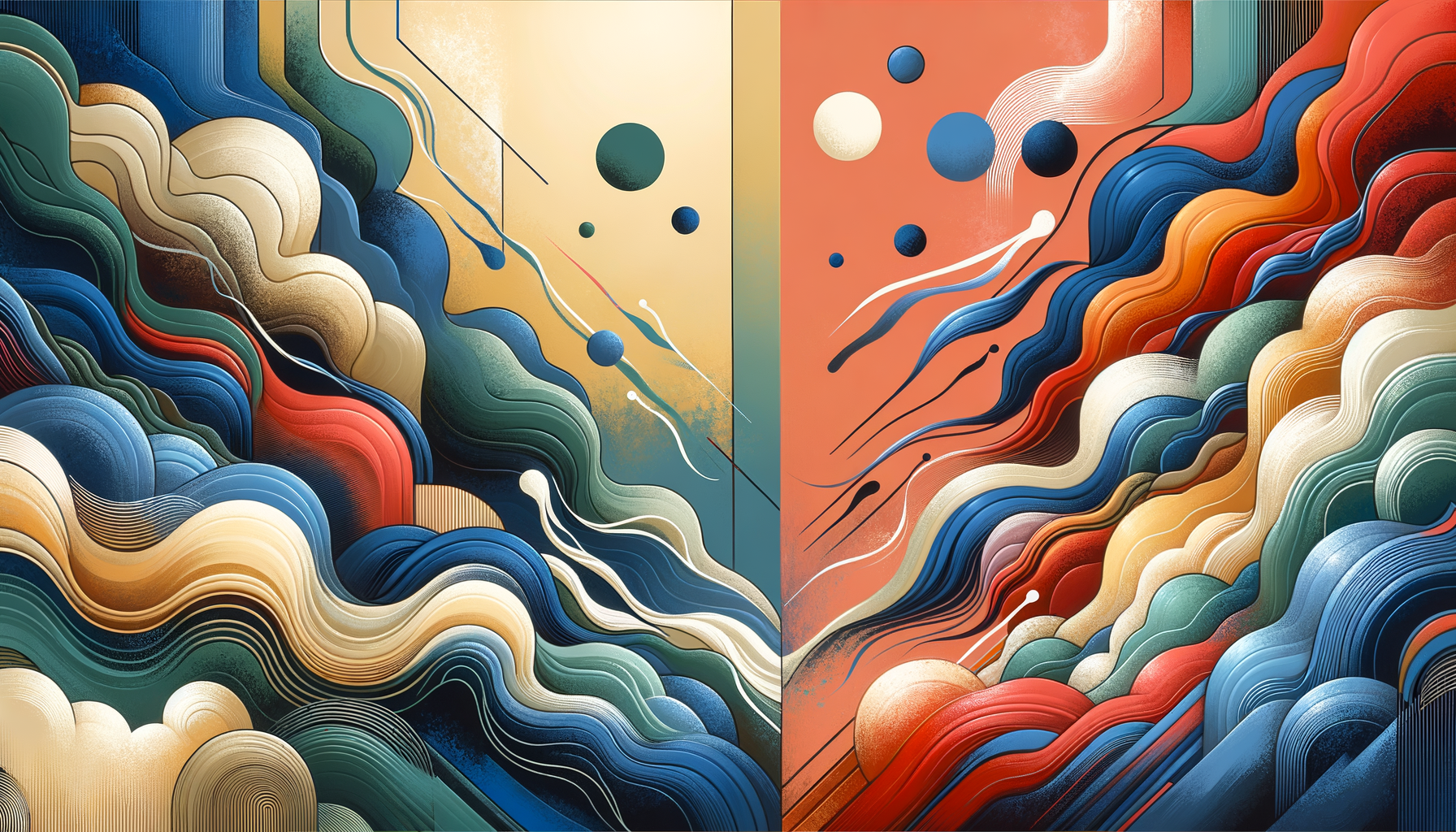There’s a story my mother used to tell with the solemnity of a Sunday sermon, her blue eyes fixed on me as though passing down treasure. She’d recount how our Winslow ancestors, rugged and noble, weathered Atlantic gales for months on end to bring their vessels home intact, loaded with molasses, rum, and spices from far-off lands. According to Mom, their success wasn’t just grit or luck—it was a secret Winslow code: “Marry someone solid, someone reliable. Love can be cultivated, but stability cannot.” This, as she explained, was how generations of Winslow sea captains chose their partners and why our family remained firmly grounded for centuries.
As a kid growing up in Kennebunkport, a town dripping in history and sea salt, that myth was gospel to me. It made sense. “Stability” built weighted anchors and patched sails. Stability avoided drunken shipwrecks and bad business deals. Stability was the quiet hero of our family lore. And, as Mom always hinted when we delicately poked through the love lives of family members over lobster rolls and coleslaw, stability was why every Winslow marriage walked that fine line between comforting predictability and outright boredom.
But here’s the kicker—the older I got, the more I started to wonder: Had my family been peddling this “stability-first” mentality as a virtue... to justify their questionable taste in partners?
Stability Looks Good in Theory, Until It’s Managing the Remote
Growing up with this mindset was like being given the blueprint to a Cape Cod-style house—you’d think it was foolproof until you realize you got saddled with drafts and no storage space for all your emotional complexities. My teenage years were marked by invisible checklists whenever anyone took me out for ice cream or walked me home from school: “Good listener? Check. Nice to waiters? Check. The opposite of edgy, unpredictable, or intriguing? Double check.”
And before you ask, yes, I dated some perfectly lovely, “solid” people. But here’s the rub: almost all of those relationships fizzled out faster than the Maine bonfires that incoming tides would wash away. With every breakup, Mom would sweetly ask, “But wasn’t he stable? Don’t you feel like you could have made it work?” Sure, he showed up on time, remembered anniversaries, and didn’t flirt with my friends, but short of founding a shipping empire with me, these guys all felt like the relationship equivalent of rice cakes. Nice to chew on but not exactly leaving me satisfied.
Still, Mom didn’t rest on this Winslow wisdom alone to hammer it home. There was Uncle Richard, who married Aunt Ellen after one meticulously planned date at a clambake in 1978 and still only takes vacations three towns over “because stability means you don’t chase thrills.” There was Great-Aunt Celia who once whispered, “A dull husband is a safe husband” while side-eyeing my cousin’s tattooed fiancé. Somewhere along the way, love and stability had become conflated in Winslow logic—two sides of the same salt-streaked coin.
“Unpacking” the Myth
As an adult and certified believer in both Edith Wharton’s quiet yearnings and Taylor Swift’s unapologetic “mad woman” energy, I began questioning this tidy idea that stability was the North Star of a successful relationship. Why did we prize it so highly? Why wasn’t chemistry, joy, humor—or, dare I say, passion—part of the equation? And how had this myth persisted across centuries of Winslow dinner tables, quietly tilting generations of romantic choices like a crooked weathervane?
It wasn’t until a therapy session—because, yes, ancestral family myths lead to therapy eventually—that my therapist dropped this little truth bomb: “Stability’s great, Charlotte, but don’t confuse it with emotional safety.” Emotional safety. The phrase struck me like a Nor’easter to the heart. Because wasn’t that the deeper thing all my ancestors were after? Safety? And more importantly, had we been looking for it in all the wrong ways?
The sea captain who wanted a partner who wouldn’t crumple at high winds didn’t mean they wanted boredom. He wanted someone steady in the storm, not necessarily steady like the weather itself. Somewhere along the way, though, the storm metaphor was lost, and Winslow storytelling replaced vivid, complicated love stories with tales of practicalities: solid footing, smooth navigation, and everyone home by 8 p.m.
Stability ≠ Settling—for Real This Time
Let’s get one thing straight: stability isn’t inherently bad. In fact, no one really aspires to a relationship where your partner suddenly moves to Buenos Aires without telling you or maxes out your joint credit cards on NFTs. But when stability becomes the only metric we measure relationships by, it leaves out some pretty big slices from life’s pie. Like fun. Like discovering strange new things about each other. Like realizing you’re wildly vulnerable because this person gets you in a way no peanut-butter-stained checklist ever could.
So here’s my new Winslow-approved code (don’t worry, Mom, I’ll jot it down for the annals): “Marry someone kind and curious. Someone whose stability is dynamic, like the sea—constant in their love, unpredictable in the ways they surprise you.” Turns out, you can cherish stability without using it as a synonym for compromising excitement or passion.
Lessons from a Winslow in the 21st Century
If you, like me, were raised on rigid family ideals about relationships (whether that’s the Winslow code of “stability” or an entirely different mantra), here are some ways to shake things up while still honoring your roots. Think of it as hoisting a new flag to the family ship.
- Step Outside the Code. Think about what parts of your family’s relationship advice actually resonate and which ones feel outdated. If the old wisdom doesn’t work, tweak it. The Winslows weren’t wrong for craving safe, supportive partnerships—but they missed the nuance.
- Don’t Treat Dating Like Box-Ticking. Sure, date the person who remembers your birthday and shows up for Sunday dinner, but do they also make you laugh until you hiccup or get you frantic-texting your friends because you’re so thrilled to see them again? Don’t skip the sparks just because someone feels “secure.”
- Know Your Own Definition of ‘Storm-Ready.’ Maybe it’s someone reliable while you chase your dreams. Maybe it’s someone who builds with you and cheers you on. Stability doesn’t mean lukewarm—define what “safe” feels like to you.
- Be Open to Surprise. Passion and stability aren’t mutually exclusive. Just ask a lobsterman—ocean currents do coexist with trustworthy shores.
Owning—and Upgrading—Our Myths
I still love the story of those gritty Winslow captains, steering their lives toward calm harbors. And honestly? I still roll my eyes fondly when I see hints of that practicality pop up in family conversations about relationships. But I also know now that their story can be rewritten without losing its heart. You can love someone fiercely, messily, joyfully, while still taking comfort in their steady presence. A partner can be your constant, even if they don’t come with maritime metaphors or plans for weekly game nights.
In the end, relationships aren’t built on choosing between stability or passion. They thrive when we give ourselves permission to have both. Just make sure you bring some metaphorical lobster rolls—or at least a good sense of humor—along the way.




















